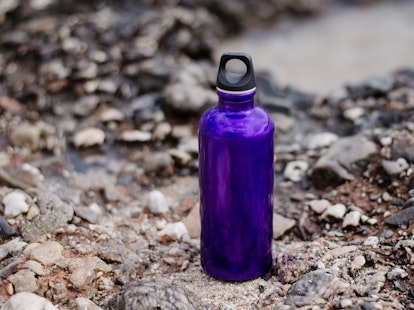The final stakeholder meeting for the Pack 15 project on the assessment of 7 substances and substance groups has been held recently, and recommended MCCPs and TBBP-A for restriction.
The consultation project of the EU Directive 2011/65/EU (ROHS 2) about the substance assessment on seven different substances and substance groups has been completed, and the final stakeholder meeting was held on April 27, 2020. Medium chained chlorinated paraffins (MCCPs) and tetrabromobisphenol-A (TBBP-A) were recommended for restriction in the meeting.
The consultation project Pack 15 started December 29, 2017 and included two main parts. In the part of substance restriction, the existing methodology to identify and assess substances for possible restrictions should be updated, and an update of the substance inventory should be performed. Additionally, an assessment of several substances for possible restriction in the future was done based on the information collected through surveys, direct consultations and stakeholder consultations. The seven substances and substance groups assessed were:
- Cobalt dichloride and cobalt sulphate
- Nickel sulphate and nickel sulfamate
- Beryllium and its compounds
- Indium phosphide
- TBBP-A
- MCCPs
- Diantimony trioxide
On April 8, 2020, the EU RoHS consultation agency announced the closure of Substance Assessment on seven different substances and substance groups, and has published the technical dossiers of these substances subsequently[1]. The final stakeholder webinar was held on April 27, 2020, and the aim of this meeting was to present the final results of the Substance Assessments and discuss the findings in a conclusive manner. No further revision cycle is foreseen. However, due to the virtual character of the meeting and its limitation for discussion, participating stakeholders were offered the additional possibility to provide final written comments on the overall results up until a week after the meeting.
The meeting recommended MCCPs and TBBP-A for restriction under the RoHS Directive, and apart from suggestions for some substances, there were no restriction recommendations under RoHS for the other five substances. It is recommended to restrict MCCPs with a chain length of C14-17 – linear or branched. MCCPs fulfil persistent, bioaccumulative and toxic (PBT) and very persistent and very bioaccumulative (vPvB) criteria of REACH Annex XIII. Alternatives for MCCPs for the plasticising as well as the flame retarding effects are commercially available. Meanwhile, under REACH, the assessment of TBBP-A as an endocrine disruptive and as a PBT is underway. The final decision on RoHS restrictions will consider the assessment results.
The recommended regulated limit of TBBP-A is 0.1% (mass fraction); the recommended limit of MCCPs is not communicated. Due to the global differences to the nomenclature and Chemical Abstract Service (CAS) numbers used in various regions, a restriction of MCCPs should be based on chlorine content in relation to a chain length within a certain range instead of referencing to distinctive CAS numbers.
SGS is committed to providing information about development in regulations for consumer products as complimentary services. Through a global network of laboratories, SGS provides a wide range of services including physical/mechanical testing, analytical testing and consultancy work for technical and non-technical parameters applicable to a comprehensive range of consumer products. Please do not hesitate to contact us for further information.
For enquiries, please contact:
Ethan Zhang
Technical Supervisor, EET RSTS
t: (86) 574 8776 7006 ext. 6007
© SGS Group Management SA - 2020 - All rights reserved - SGS is a registered trademark of SGS Group Management SA. This is a publication of SGS, except for 3rd parties’ contents submitted or licensed for use by SGS. SGS neither endorses nor disapproves said 3rd parties contents. This publication is intended to provide technical information and shall not be considered an exhaustive treatment of any subject treated. It is strictly educational and does not replace any legal requirements or applicable regulations. It is not intended to constitute consulting or professional advice. The information contained herein is provided “as is” and SGS does not warrant that it will be error-free or will meet any particular criteria of performance or quality. Do not quote or refer any information herein without SGS’ prior written consent.



